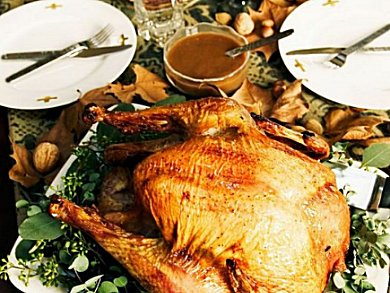Sudden cardiac death (SCD) is a significant health issue, causing millions of deaths worldwide annually. The likelihood of such death is higher in winter and the highest likelihood occurs on Christmas Day and New Years Day, but not the interim period. Thanksgiving, Independence Day and the Islamic holiday Eid Al-Fitr also show significant increases in the rate of cardiac events or death.
The human SULT1A enzymes play a key role in deactivating catecholamines, the hormones the body uses to react to stress. Many plants naturally contain phenols and polyphenols that inhibit SULT1A in vitro. There is also evidence that this inhibition occurs in vivo.
Ken Eagle, USA, tied together these two strands of work and proposed that holiday overindulgence in plantbased foods like herbs, spices, recreational alcohols, fruits, and vegetables can act toxicologically to inhibit the SULT1A catecholamine deactivation system in some patients. With reduced deactivation, catecholamines resulting from stress or excitement can accumulate to levels that can trigger arrhythmias and SCD.
Understanding this potential mechanism would provide a clear benefit to doctors and potential patients.
The author recommends that ongoing work to use phenols and polyphenols as medicinals/antioxidants should be assessed in light of the potential for acute reactions. The possible involvement of SULT1A inhibition in Sudden Infant Death Syndrome (SIDS) should also be studied.
 Holiday sudden cardiac death: food and alcohol inhibition of SULT1A enzymes as a precipitant
Holiday sudden cardiac death: food and alcohol inhibition of SULT1A enzymes as a precipitant
K. Eagle,
J. Appl. Toxicol 2012, 32, 751–755.
DOI: 10.1002/jat.2764


